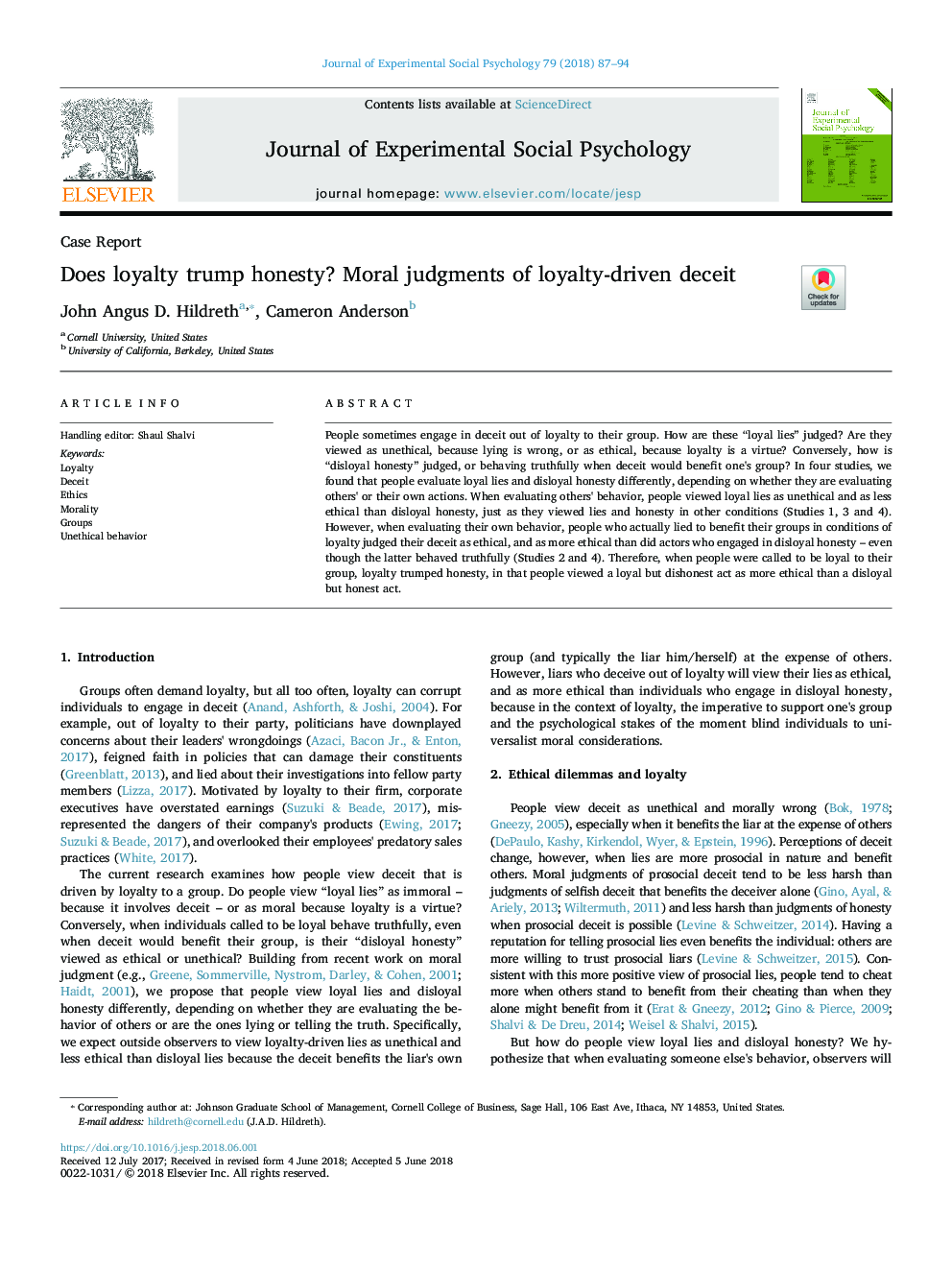| کد مقاله | کد نشریه | سال انتشار | مقاله انگلیسی | نسخه تمام متن |
|---|---|---|---|---|
| 7323996 | 1475844 | 2018 | 8 صفحه PDF | دانلود رایگان |
عنوان انگلیسی مقاله ISI
Does loyalty trump honesty? Moral judgments of loyalty-driven deceit
ترجمه فارسی عنوان
آیا وفاداری صادقانه است؟ قضاوت های اخلاقی فریب وفاداری
دانلود مقاله + سفارش ترجمه
دانلود مقاله ISI انگلیسی
رایگان برای ایرانیان
کلمات کلیدی
وفاداری، فریب، اخلاق، اخلاق، گروه ها، رفتار غیر اخلاقی،
موضوعات مرتبط
علوم زیستی و بیوفناوری
علم عصب شناسی
علوم اعصاب رفتاری
چکیده انگلیسی
People sometimes engage in deceit out of loyalty to their group. How are these “loyal lies” judged? Are they viewed as unethical, because lying is wrong, or as ethical, because loyalty is a virtue? Conversely, how is “disloyal honesty” judged, or behaving truthfully when deceit would benefit one's group? In four studies, we found that people evaluate loyal lies and disloyal honesty differently, depending on whether they are evaluating others' or their own actions. When evaluating others' behavior, people viewed loyal lies as unethical and as less ethical than disloyal honesty, just as they viewed lies and honesty in other conditions (Studies 1, 3 and 4). However, when evaluating their own behavior, people who actually lied to benefit their groups in conditions of loyalty judged their deceit as ethical, and as more ethical than did actors who engaged in disloyal honesty - even though the latter behaved truthfully (Studies 2 and 4). Therefore, when people were called to be loyal to their group, loyalty trumped honesty, in that people viewed a loyal but dishonest act as more ethical than a disloyal but honest act.
ناشر
Database: Elsevier - ScienceDirect (ساینس دایرکت)
Journal: Journal of Experimental Social Psychology - Volume 79, November 2018, Pages 87-94
Journal: Journal of Experimental Social Psychology - Volume 79, November 2018, Pages 87-94
نویسندگان
John Angus D. Hildreth, Cameron Anderson,
